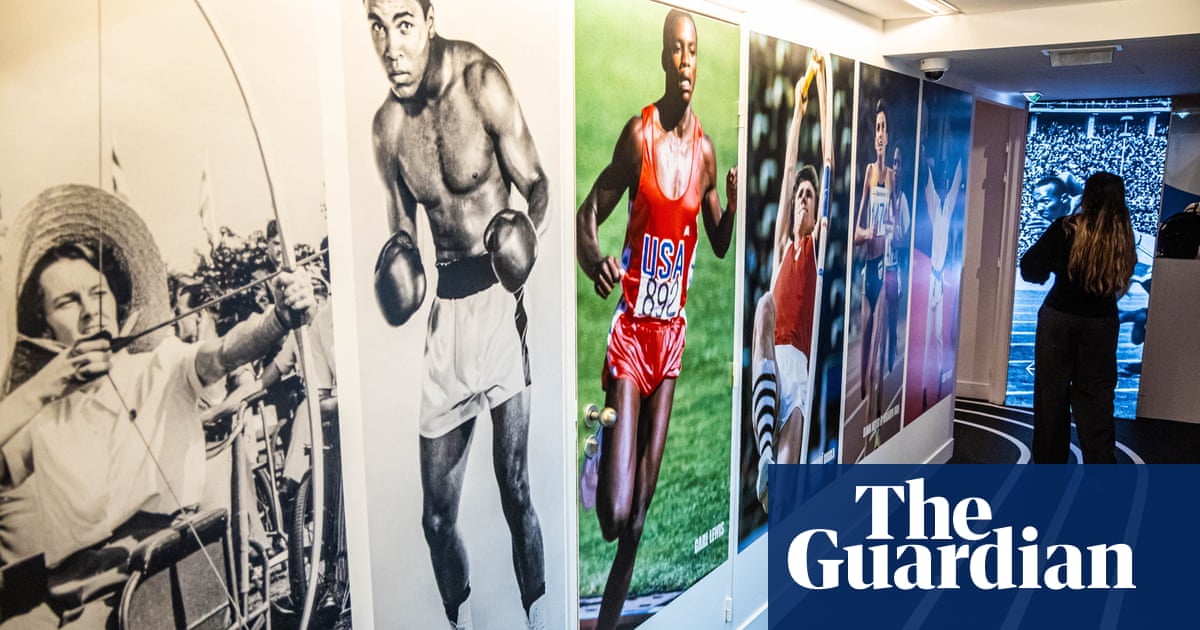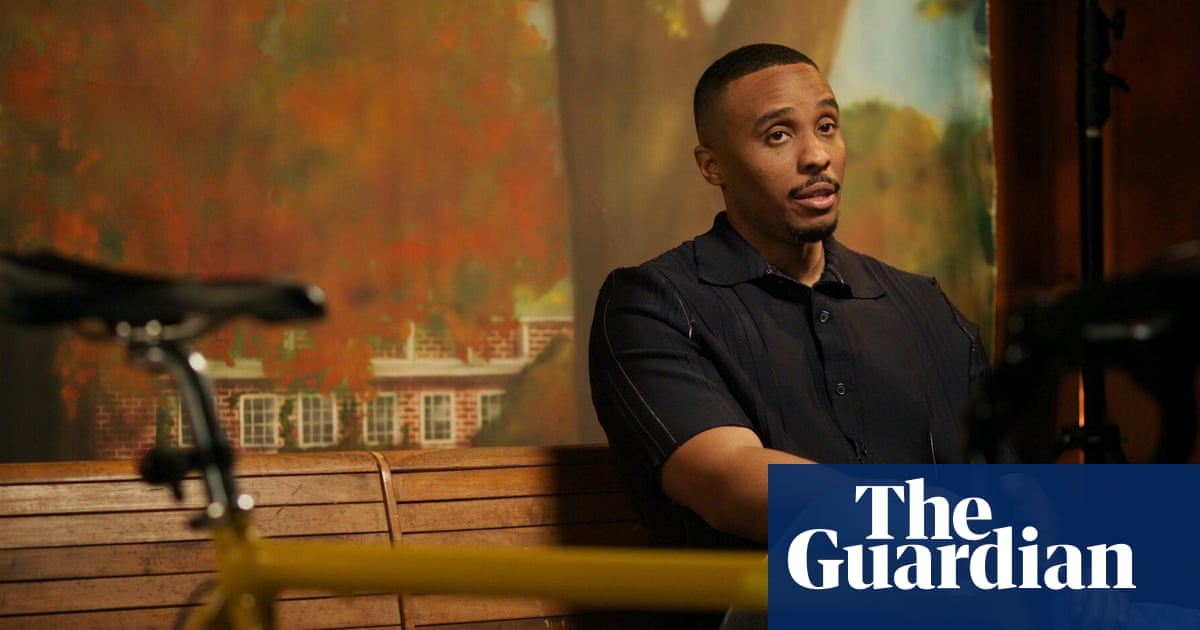
From the Nazi stadium propaganda in 1936 Berlin to the 1968 Mexico City podium protest of medal-winners Tommie Smith and John Carlos, who were expelled from the competition after raising their gloved fists in a Black Power salute against racial injustice, the Olympic Games have held a mirror up to some of the darkest moments of 20th-century history.
Now, as the Paris Olympics prepares to open this summer against a backdrop of war from Ukraine to the Middle East – with Emmanuel Macron saying Russia will be asked to observe a ceasefire in Ukraine during the Games – a new exhibition in Paris takes an unflinching look at the social and geopolitical impact of the Games over the last century.
The world’s biggest sporting event has at times been exploited by totalitarian and authoritarian regimes, and at others raised serious questions about race discrimination, colonialism, sexism and discrimination, amid boycotts and defections.
“Sport is never just sport,” said Caroline François, the co-curator. “This exhibition is about how, through sport, we can ask questions of our own society.”
The exhibition Olympic Games: Mirror of Our Societies, which opens at Paris’s Memorial de la Shoah on Friday, traces the original pacifist intentions of the Games and shows how competitive rivalry was sometimes exacerbated between nations and athletes in periods of dictatorship or during the cold war.
The International Olympic Committee founder, Pierre de Coubertin, a young French aristocrat, argued that in the 1890s the Games would be a symbol of peace and universalism, although they were initially focused on the powerful ruling classes and muscular white men. The competition excluded women from certain events, and it wasn’t until the 2012 London Olympics that women competed in all the sports on the programme.
“Colonised people could only take part under the flag of the country that ruled over them,” the exhibition explains.
Familiar Olympic Games rituals are reassessed, including the flame relay from Greece to the host country, which today is organised as the ultimate journey of inclusivity and tolerance, but began as an idea of the Nazis in 1936.
Architecture was also used as political propaganda, most notably Berlin’s vast stadium where Hitler appeared to huge crowds in Leni Riefenstahl’s film Olympia. And in wartime, stadiums previously used for Olympics events, proved efficient places to corral and shut people into, and were put to sinister purposes. The Vélodrôme d’Hiver, for example, which had been used during the Paris Olympics of 1924 for boxing, weight-lifting and wrestling, was used to round up and hold 13,000 Parisian Jews in 1942 in Nazi-occupied France.
The Munich Olympics of 1972 were supposed to erase the memory of Nazi Germany’s 1936 Games, but 11 Israeli athletes were killed by the Palestinian militant organisation Black September on 5 September. One West German police officer and five of the hostage-takers were also killed during a shootout at the Fürstenfeldbruck airbase. The exhibition examines the fallout.
There are also tributes to astonishing individual players who made a stand. The US athletes Tommie Smith and John Carlos’s Black Power salute in 1968, when they also wore black socks with no shoes to protest against poverty, was one of the biggest political statements in the Games’ history and was supported by the Australian Peter Norman, who was with them on the podium. Wilma Rudolph, the US sprinter who had survived polio in the segregated American south, became the first woman to win three Olympic golds in a single year. A civil rights campaigner, Rudolph’s triumphant return to her home town in Tennessee after the 1960 Olympics resulted in a parade said to be the town’s first integrated event.
The Paris exhibition also looks at issues of homophobia, disability rights and the Paralympics.
Paul Dietschy, a contemporary history professor at the University of Franche-Comté and the co-curator, said: “This shows how sport can be used to understand the history of the 20th century.” He said the exhibition showed the Olympics in both its “most dynamic and most tragic aspects”.
He said that the scale of the Olympics was growing and its worldwide broadcast coverage had been used by modern authoritarian regimes, such as the Beijing Games of 2008. “So it’s also a battleground for values. And we can hope that the 2024 Games will be those of democracy, of true universalism and this exhibition will help people understand them.”
Les Jeux Olympiques: Miroir des Sociétés at the Mémorial de la Shoah, Paris, until 10 November












